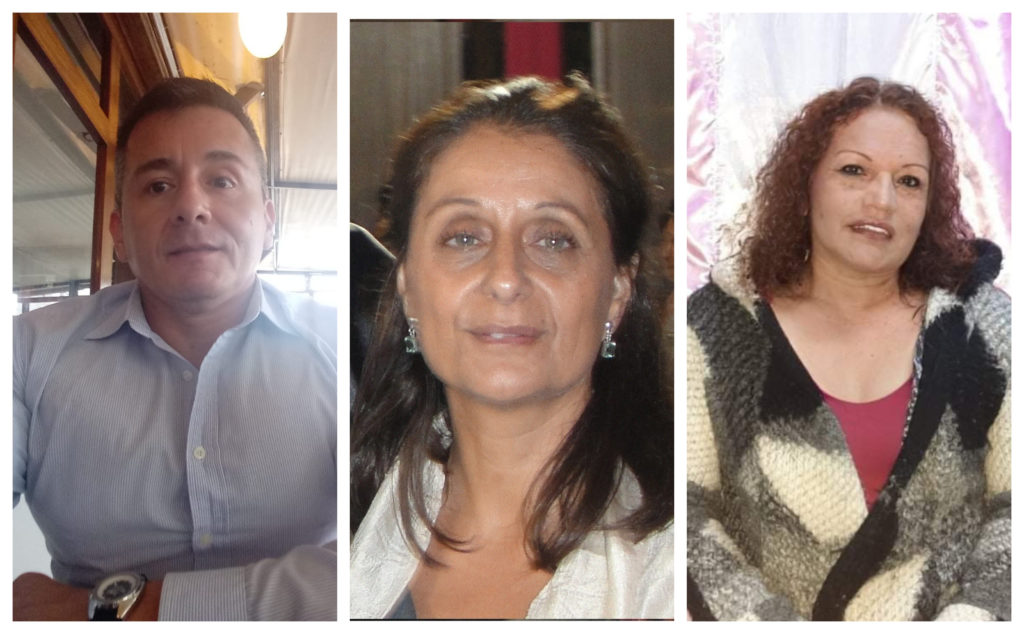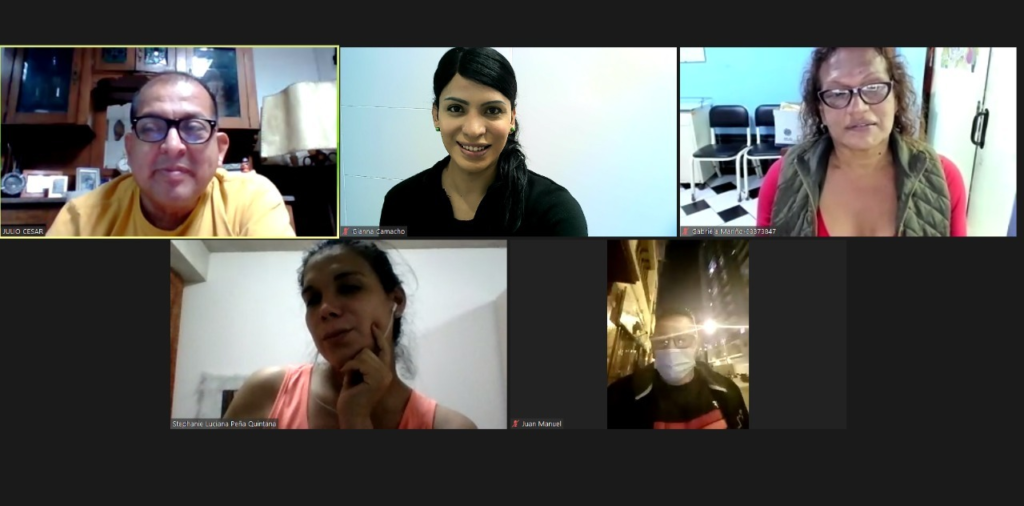LGBTI rights in Peru are limited. To date, the country has yet to comply with a 2018 advisory opinion by the Inter-American Court of Human Rights which recognized the right of lesbian, gay, bisexual, transgender and intersex (LGBTI) people to obtain marriage licenses and official identification that conform to their gender identity.
Aligned with Pride month in June 2020, Vital Strategies launched a new project, “Accelerating Registration Equality for LGBTI People in Peru.” The project builds upon strong relationships formed through the Civil Registration and Vital Statistics (CRVS) Program in Peru and aims to ensure that the country’s LGBTI community has universal and straightforward access to civil registration and identity documents. Civil registration provides a host of protections and benefits, including access to health care, that are essential to the health and well-being of all people.
Vital Strategies is providing technical assistance to three civil society organizations in Lima, Peru, supporting their advocacy efforts to remove the legal and administrative barriers that currently prevent LGBTI people from obtaining accurate identity documents or registering vital events such as marriages. In commemoration of Transgender Day of Remembrance (November 20), we spoke to some of our implementing partners in Peru to learn more about the work:
- Ximena Salazar, anthropologist and researcher with a focus on sexuality, reproductive health, and sexual health, working in collaboration with Unicxs at the Universidad Peruana Cayetano Heredia;
- Gabriela Mariño, trans leader and activist, and founder of Asociación Angel Azul, an organization working to promote the rights and wellbeing of the trans community in Lima; and
- Juan Manuel Castillo, lawyer and activist specializing in identity rights for the LGBTI community, and current in-house legal counsel for Programa de Soporte a la Autoayuda de Personas Seropositivas (Prosa), an NGO which supports the rights and health of the LGBTI community.

What is civil registration like in Peru, and how does it affect a person’s access to public and health services?
Ximena Salazar: In Peru, births, marriages and deaths of all citizens must be registered with the National Registry of Identification and Civil Status (RENIEC). This office grants each citizen their identification document, known as a DNI. Even with a birth certificate, having a DNI is a requirement to access public and health services and for all procedures and rights. Without a DNI, a person cannot access even private health services.
Gabriela Mariño: Trans women are quite vulnerable when it comes to the civil registration system. They face a high percentage of incidents of discrimination when trying to access services, given that the name listed on their identity document is often incongruent with their gender identity.
What is the current state of identity rights in Peru?
Ximena Salazar: According to the political constitution of Peru, all citizens have the same rights: to life, identity, well-being. Nevertheless, 2018 figures have shown that 0.7% of the national population (approximately 250,000 people) are missing a DNI and therefore lack access to many of these guaranteed rights. To resolve this, RENIEC launched the 2017-2021 Peru Free National Undocumented Plan, to ensure that all residents secure identity documents and that barriers to accessing such documents are removed. Those without a DNI largely come from rural communities, people of African descent, people from indigenous areas of the Amazon, transgender people and those with disabilities.
Juan Manuel Castillo: The issue lies in the fact that RENIEC only recognizes the sex assigned at birth when administering a national identification document. Article 29 of the Civil Code establishes that changes in one’s name can only be done by a judge, which is very onerous; a gender identity law is needed in order to ease this process.
Gabriela Mariño: Currently, taking the legal route to attaining a name change on one’s identity document implies high financial costs, time and potentially the decision of a judge that is unaware of the hardships faced by the trans community.
Has the COVID-19 pandemic exacerbated gender identity problems?
Gabriela Mariño: The current state of emergency in public health has exacerbated our lived experiences and revealed the high vulnerability of our transgender population—from the denial of health care and social assistance, to living in the precarious situation in full quarantine.
What barriers do LGBTI people face when they change their names or register marriages?
Ximena Salazar: Because equal marriage is not allowed in Peru, the barrier is precisely that same-sex couples cannot access any type of legal union. On the part of transgender people, the process for changing one’s name is judicial, not administrative. Results often depend on the discretion of each judge, and requests are rejected more often than not. In the case that a judge approves a name change, RENIEC must also give their approval, adding yet another obstacle in the process.
Juan Manuel Castillo: Marriages that occur outside of Peru cannot be registered, despite efforts to change this. These are the kinds of barriers experienced by LGBTI people in Peru that have informed our project.

A July 30th ruling by the Superior Court of Justice of Lima ordered the National Registry of Identification and Civil Status (RENIEC) to modify the process by which a person can change their name and sex on national identity documents. The Court found the current state of affairs to be unconstitutional because a) the procedural obstacles to alter one’s identity documents violates the right to equality and non-discrimination and b) health benefits should respond to actual health needs, rather than be limited to the sex assigned in identity documents.
In Early November, a case regarding a same-sex couple married in Mexico was brought to the Constitutional Court to determine whether RENIEC will begin recognizing same-sex marriages. Unfortunately, an insufficient number of votes were cast to approve the recognition of marriage equality. These two events demonstrate the desire by Peruvians to advance LGBTI rights despite many legal and administrative barriers.
Though legal and administrative changes have yet to be implemented despite these efforts to align with the advisory opinion 24/17 of the Inter-American Court on Human Rights, the advocacy demonstrated by local citizens and civil society organizations represent a hopeful step forward for LGBTI rights in Peru. Advocates are optimistic that with additional pressure placed on the courts, elevating these cases to the International Court on Human Rights, and continued efforts like this project, the country’s gender identity laws will continue to move in the right direction.
Vital Strategies and its partners remain in close collaboration, working to remove barriers for LGBTI people to register vital events and obtain identity documents that align with their name and gender identities.